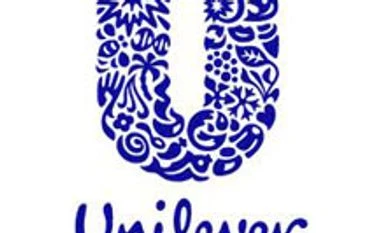The world’s second-largest consumer products company, Unilever Plc, expects underlying sales growth to taper to levels of about 3-3.5 per cent in the September 2013 quarter, lower than the five per cent sales growth it saw in the June quarter. More importantly, the maker of Dove shampoo and Lux soap was likely to see this slowdown because emerging markets, which give it nearly 60 per cent of its revenues, was losing steam faster than expected.
This warning by Unilever chief executive's Paul Polman, the first since 2004, was enough to spook investors from London to India. Unilever’s stock fell by four per cent on the London Stock Exchange, dragging down the FTSE in the process. In India, Unilever’s subsidiary, Hindustan Unilever, fell three per cent in morning trade on BSE on Tuesday before stabilising in the afternoon. The country’s largest consumer goods maker closed the day at Rs 619.30 on BSE, down 1.29 per cent.
The fall in HUL’s stock price, however, couldn't have come at a worse time. The Rs 25,810-crore company has a new managing director and chief executive in Sanjiv Mehta, who took over on Tuesday from Nitin Paranjpe, who has been elevated to the position of president, homecare, Unilever.
Company watchers say Mehta has his task cut out, propping up volume growth. In the past, HUL's management has made no bones about the fact that its growth model would be volume-led. During announcement of the company’s first quarter results in July, Paranjpe had said: “We are clear that we will not deviate from volume growth because that is a reflection that consumers are buying your products.”
This urgency to ramp up volume growth is not without a reason. In the June quarter, HUL saw its slowest sales growth in three years at seven per cent, with volume growth at four per cent only.
In the September quarter, analysts do not expect the company to outperform this number, with volume growth expectations in the four to five per cent mark.
“We expect HUL’s domestic FMCG business to report nine per cent revenue growth year-on-year, driven by volume growth of five per cent and price/mix impact of four per cent. However, earnings are likely to remain flat due to lower treasury and other operating income, and Ebit (earnings before interest & tax) margin pressure in soaps and detergents,” Kotak Institutional Equities said in its report released on Tuesday.
This warning by Unilever chief executive's Paul Polman, the first since 2004, was enough to spook investors from London to India. Unilever’s stock fell by four per cent on the London Stock Exchange, dragging down the FTSE in the process. In India, Unilever’s subsidiary, Hindustan Unilever, fell three per cent in morning trade on BSE on Tuesday before stabilising in the afternoon. The country’s largest consumer goods maker closed the day at Rs 619.30 on BSE, down 1.29 per cent.
The fall in HUL’s stock price, however, couldn't have come at a worse time. The Rs 25,810-crore company has a new managing director and chief executive in Sanjiv Mehta, who took over on Tuesday from Nitin Paranjpe, who has been elevated to the position of president, homecare, Unilever.
Company watchers say Mehta has his task cut out, propping up volume growth. In the past, HUL's management has made no bones about the fact that its growth model would be volume-led. During announcement of the company’s first quarter results in July, Paranjpe had said: “We are clear that we will not deviate from volume growth because that is a reflection that consumers are buying your products.”
This urgency to ramp up volume growth is not without a reason. In the June quarter, HUL saw its slowest sales growth in three years at seven per cent, with volume growth at four per cent only.
In the September quarter, analysts do not expect the company to outperform this number, with volume growth expectations in the four to five per cent mark.
“We expect HUL’s domestic FMCG business to report nine per cent revenue growth year-on-year, driven by volume growth of five per cent and price/mix impact of four per cent. However, earnings are likely to remain flat due to lower treasury and other operating income, and Ebit (earnings before interest & tax) margin pressure in soaps and detergents,” Kotak Institutional Equities said in its report released on Tuesday.
In beverages, which give HUL nearly 12 per cent of its revenues, the company in the last few quarters has been focusing on mass products such as Brooke Bond Taaza, while personal products (which give HUL 29 per cent of its revenues) and packaged foods (5.9 per cent revenue contributor) remain challenging as discretionary spends continue to be subdued.
While HUL has upped advertising spends on personal care products such as Dove, Ponds and Fair & Lovely in the last few months, what would be interesting to watch is whether the Rs 1,500-crore Fair & Lovely, struggling for the last few quarters, does respond to the company’s marketing push.
)